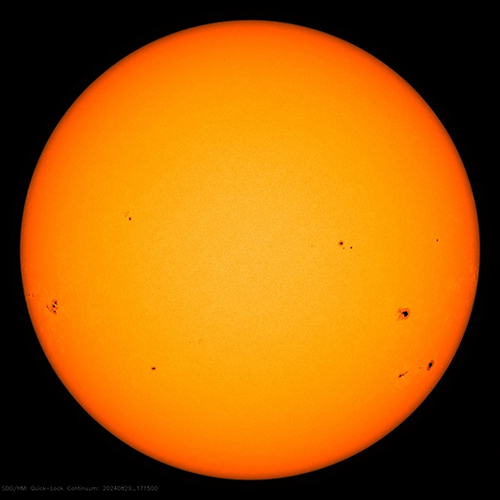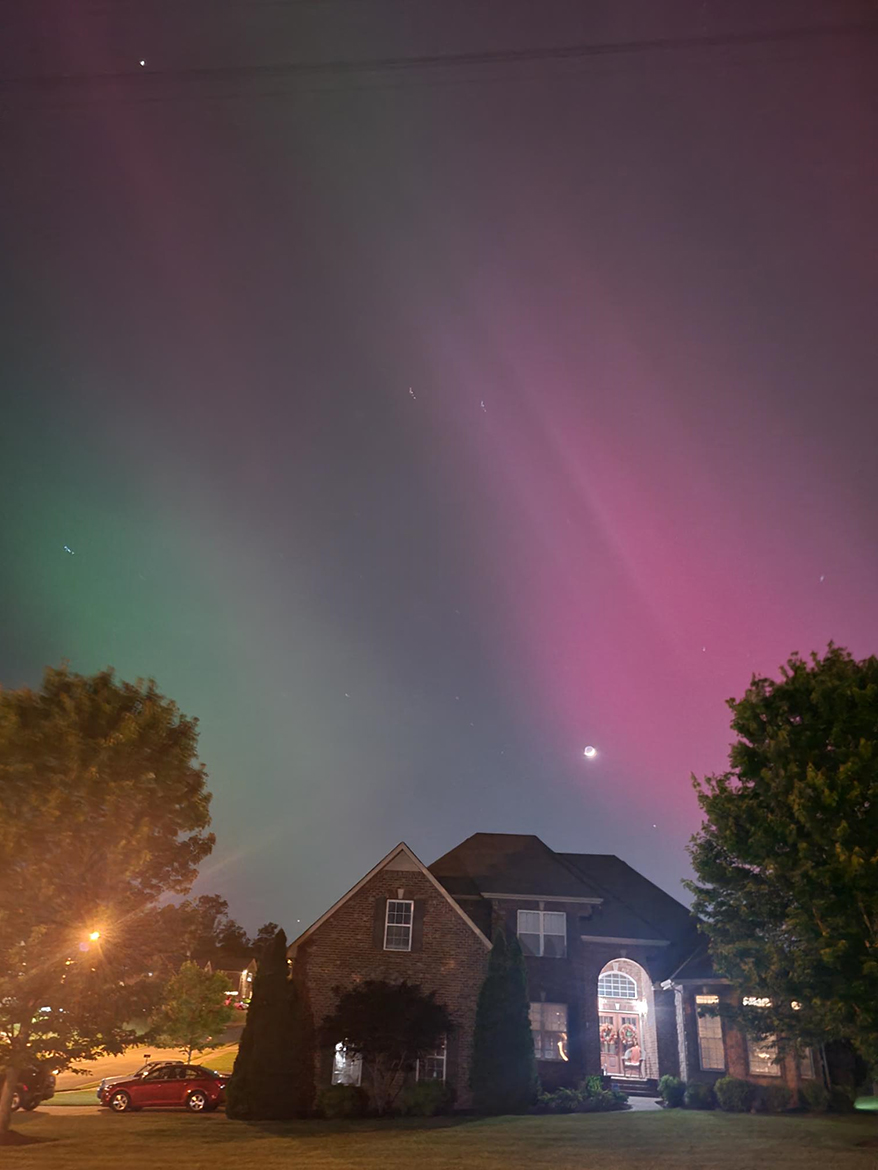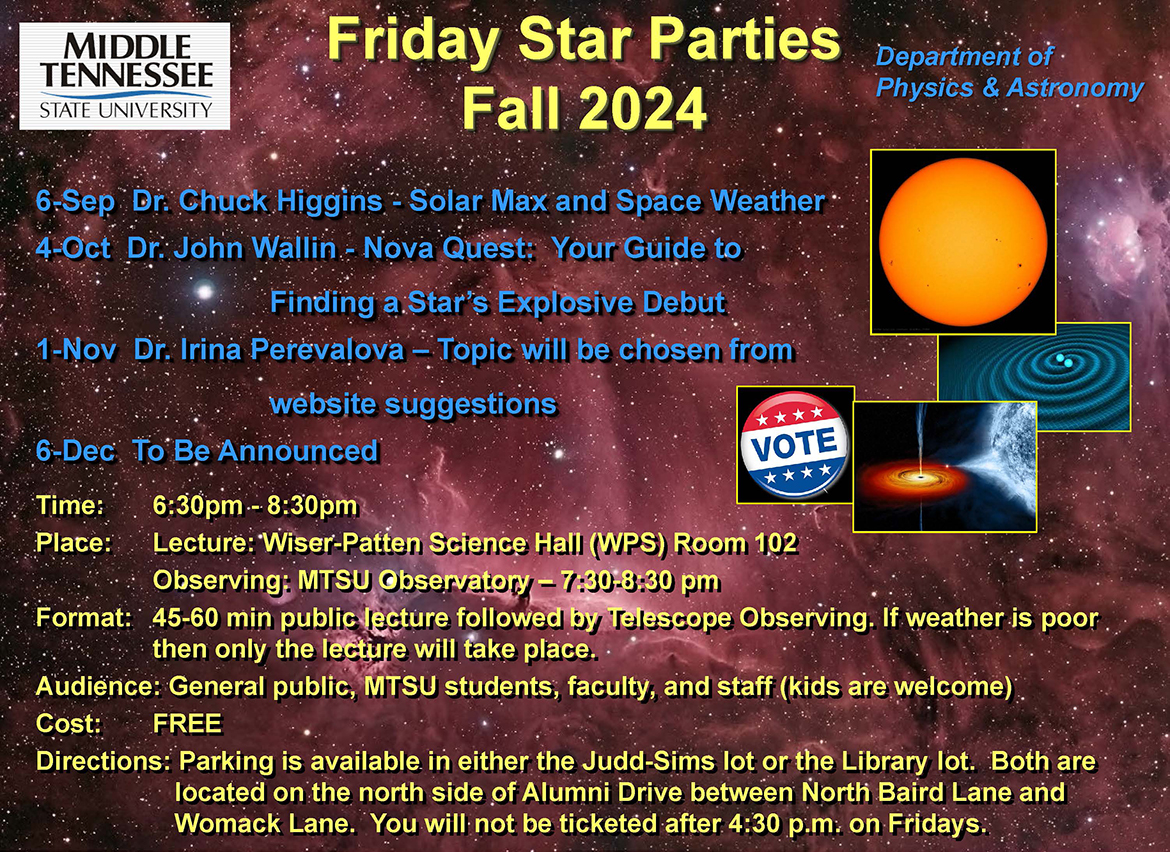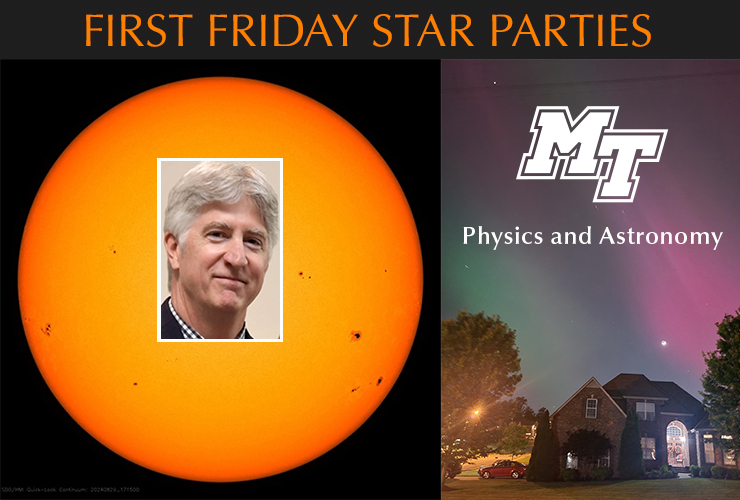MURFREESBORO, Tenn. — Middle Tennessee State University Department of Physics and Astronomy professor Chuck Higgins will discuss “Solar Max and Space Weather” for the first Friday Star Party of the fall 2024 semester.
The Star Party will start at 6:30 p.m. Friday, Sept. 6, in Wiser-Patten Science Hall Room 102. Free parking after 4:30 p.m. can be found behind in the Judd-Sims lot or James E. Walker Library lot and other nearby lots, both located on the north side of Alumni Drive between North Baird Lane and Womack Lane.

All Star parties are free and open to the public and children are welcome. The format is a 45- to 60-minute lecture followed by a telescope viewing at the nearby MTSU Observatory, weather permitting.
Typically held on the first Friday of the month during the semester, the Physics and Astronomy Friday Star Parties feature an assortment of interesting astronomy and physics topics from veteran faculty members.
Referring to his lecture, Higgins said “the sun is active right now with lots of sunspots and solar flares. The sun goes through an approximately 11-year sunspot cycle (or 22-year magnetic cycle), and the current cycle is expected to peak in 2025. This peak in sunspot and other solar activity is called solar maximum.
“I will show the latest sunspot data and explain how solar max can affect our surrounding space environment, also called space weather. Many of us saw the aurora from Tennessee in May 2024, quite a rare event. Normally, the aurorae are confined to areas near the north or south polar regions, but during times of high solar activity, the sun’s plasma can distort Earth’s magnetic field and cause the aurora to happen at much lower latitudes.”

Higgins said he will explain “why the sun is doing this and show how the solar max can affect other things near and on the Earth (satellites, power grids, space travel, etc.),” he added.
“We have many spacecraft that are studying the sun, and I will overview a few of them,” he said. “Although these solar events are mostly harmless to humans because we are protected by Earth’s magnetic field, our sun is an active star right now and the better we understand it, the better we can mitigate its effects.”
The remaining Friday Star Party schedule:
• Oct. 4 — “Nova Quest: Your Guide to Finding a Star’s Explosive Debut,” presented by professor John Wallin.
• Nov. 1 — Topic to be announced from web suggestions presented by instructor Irina Perevalova.
• Dec. 6 — Topic to be announced.
For more information about Physics and Astronomy, one of 11 College of Basic and Applied Sciences departments, call 615-898-2130.
— Randy Weiler (Randy.Weiler@mtsu.edu)




COMMENTS ARE OFF THIS POST